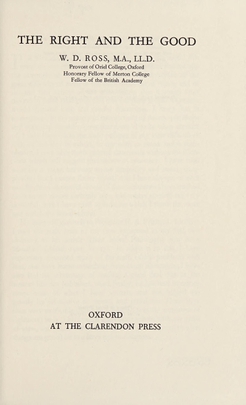Related Research Articles

Axiology is the philosophical study of value. It includes questions about the nature and classification of values and about what kinds of things have value. It is intimately connected with various other philosophical fields that crucially depend on the notion of value, like ethics, aesthetics or philosophy of religion. It is also closely related to value theory and meta-ethics. The term was first used by Eduard von Hartmann in 1887 and by Paul Lapie in 1902.

Ethics or moral philosophy is a branch of philosophy that "involves systematizing, defending, and recommending concepts of right and wrong behavior". The field of ethics, along with aesthetics, concerns matters of value; these fields comprise the branch of philosophy called axiology.
In metaphilosophy and ethics, metaethics is the study of the nature, scope, and meaning of moral judgment. It is one of the three branches of ethics generally studied by philosophers, the others being normative ethics and applied ethics.
In philosophical ethics, the naturalistic fallacy is the claim that it is possible to give a reductive explanation of good, in terms of natural properties such as pleasant or desirable. The term was introduced by British philosopher G. E. Moore in his 1903 book Principia Ethica.
In environmental philosophy, environmental ethics is an established field of practical philosophy "which reconstructs the essential types of argumentation that can be made for protecting natural entities and the sustainable use of natural resources." The main competing paradigms are anthropocentrism, physiocentrism, and theocentrism. Environmental ethics exerts influence on a large range of disciplines including environmental law, environmental sociology, ecotheology, ecological economics, ecology and environmental geography.

The categorical imperative is the central philosophical concept in the deontological moral philosophy of Immanuel Kant. Introduced in Kant's 1785 Groundwork of the Metaphysics of Morals, it is a way of evaluating motivations for action. It is best known in its original formulation: "Act only according to that maxim whereby you can at the same time will that it should become a universal law."

Groundwork of the Metaphysics of Morals is the first of Immanuel Kant's mature works on moral philosophy and remains one of the most influential in the field. Kant conceives his investigation as a work of foundational ethics—one that clears the ground for future research by explaining the core concepts and principles of moral theory, and showing that they are normative for rational agents.
In moral philosophy, deontological ethics or deontology is the normative ethical theory that the morality of an action should be based on whether that action itself is right or wrong under a series of rules and principles, rather than based on the consequences of the action. It is sometimes described as duty-, obligation-, or rule-based ethics. Deontological ethics is commonly contrasted to consequentialism, utilitarianism, virtue ethics, and pragmatic ethics. In this terminology, action is more important than the consequences.
In ethics, welfarism is a theory that well-being, what is good for someone or what makes a life worth living, is the only thing that has intrinsic value. In its most general sense, it can be defined as descriptive theory about what has value, but some philosophers also understand welfarism as a moral theory, that what one should do is ultimately determined by considerations of well-being. The right action, policy or rule is the one leading to the maximal amount of well-being. In this sense, it is often seen as a type of consequentialism, and can take the form of utilitarianism.
In moral philosophy, instrumental and intrinsic value are the distinction between what is a means to an end and what is as an end in itself. Things are deemed to have instrumental value if they help one achieve a particular end; intrinsic values, by contrast, are understood to be desirable in and of themselves. A tool or appliance, such as a hammer or washing machine, has instrumental value because it helps you pound in a nail or clean your clothes. Happiness and pleasure are typically considered to have intrinsic value insofar as asking why someone would want them makes little sense: they are desirable for their own sake irrespective of their possible instrumental value. The classic names instrumental and intrinsic were coined by sociologist Max Weber, who spent years studying good meanings people assigned to their actions and beliefs.
Secular ethics is a branch of moral philosophy in which ethics is based solely on human faculties such as logic, empathy, reason or moral intuition, and not derived from belief in supernatural revelation or guidance—a source of ethics in many religions. Secular ethics refers to any ethical system that does not draw on the supernatural, and includes humanism, secularism and freethinking. A classical example of literature on secular ethics is the Kural text, authored by the ancient Indian philosopher Valluvar.

In ethics, intrinsic value is a property of anything that is valuable on its own. Intrinsic value is in contrast to instrumental value, which is a property of anything that derives its value from a relation to another intrinsically valuable thing. Intrinsic value is always something that an object has "in itself" or "for its own sake", and is an intrinsic property. An object with intrinsic value may be regarded as an end, or in Kantian terminology, as an end-in-itself.
In ethics and social sciences, value denotes the degree of importance of some thing or action, with the aim of determining which actions are best to do or what way is best to live, or to describe the significance of different actions. Value systems are prospective and prescriptive beliefs; they affect the ethical behavior of a person or are the basis of their intentional activities. Often primary values are strong and secondary values are suitable for changes. What makes an action valuable may in turn depend on the ethical values of the objects it increases, decreases, or alters. An object with "ethic value" may be termed an "ethic or philosophic good".

Kantian ethics refers to a deontological ethical theory developed by German philosopher Immanuel Kant that is based on the notion that: "It is impossible to think of anything at all in the world, or indeed even beyond it, that could be considered good without limitation except a good will." The theory was developed in the context of Enlightenment rationalism. It states that an action can only be moral if (i) it is motivated by a sense of duty and (ii) its maxim may be rationally willed a universal, objective law.
Ethics or moral philosophy is a branch of philosophy that involves systematizing, defending, and recommending concepts of right and wrong conduct. The field of ethics, along with aesthetics, concern matters of value, and thus comprise the branch of philosophy called axiology.
Ethics is the branch of philosophy that examines right and wrong moral behavior, moral concepts and moral language. Ethics or moral philosophy is a branch of philosophy that "involves systematizing, defending, and recommending concepts of right and wrong behavior". The field of ethics, along with aesthetics, concerns matters of value, and thus comprises the branch of philosophy called axiology.

In religion, ethics, philosophy, and psychology "good and evil" is a very common dichotomy. In cultures with Manichaean and Abrahamic religious influence, evil is perceived as the dualistic antagonistic opposite of good, in which good should prevail and evil should be defeated. In cultures with Buddhist spiritual influence, both good and evil are perceived as part of an antagonistic duality that itself must be overcome through achieving Śūnyatā meaning emptiness in the sense of recognition of good and evil being two opposing principles but not a reality, emptying the duality of them, and achieving a oneness.

The values that a person holds may be personal or political depending on whether they are considered in relation to the individual or to society. Apart from moral virtue, examples of personal values include friendship, knowledge, beauty etc. and examples of political values, justice, equality and liberty. This article will outline some current ideas relating to the first group – personal values. It will begin by looking at the kinds of thing that have value and finish with a look at some of the theories that attempt to describe what value is. Reference will be made solely to Western sources although it is recognised that many, if not all, of the values discussed may be universal.

In the field of philosophy, Axiological ethics is concerned with the values by which people uphold ethical standards, and the investigation and development of theories of ethical behaviour. Axiological ethics investigates and questions what the intellectual bases for a system of values. Axiologic ethics explore the justifications for value systems, and examine if there exists an objective justification, beyond arbitrary personal preference, for the existence and practise of a given value system. Moreover, although axiological ethics are a subfield of Ethical philosophy, axiological investigation usually includes epistemology and the value theory.

The Right and the Good is a 1930 book by the Scottish philosopher David Ross. In it, Ross develops a deontological pluralism based on prima facie duties. Ross defends a realist position about morality and an intuitionist position about moral knowledge. The Right and the Good has been praised as one of the most important works of ethical theory in the twentieth century.
References
- ↑ David Detmer (1988). Freedom as a Value: A Critique of the Ethical Theory of Jean-Paul Sartre. Open Court Publishing. ISBN 978-0812690835.
- ↑ H. T. Odum, Environmental Accounting: Emergy and Environmental Decision-making, 1996.
- ↑ Dewey, J (1939). Theory of Valuation. University of Chicago. ISBN 978-0226575940.
- ↑ Immanuel Kant & Gary Banham (Authors) plus other contributors (1787–2007). The Critique of Pure Reason. Macmillan. ISBN 978-0230013384.
{{cite book}}:|author=has generic name (help) - ↑ Kant, Immanuel. Groundlaying toward the Metaphysics of Morals.
- ↑ Debreu, G (1972). Theory of Value: An Axiomatic Analysis of Economic Equilibrium . Cowles Foundation - Yale University. ISBN 978-0300015591.
- ↑ H. T. Odum, Environmental Accounting: Emergy and environmental decision-making, 1996.
- ↑ S. Gesell (1958). The Natural Economic Order, Part III, Chapter 3.